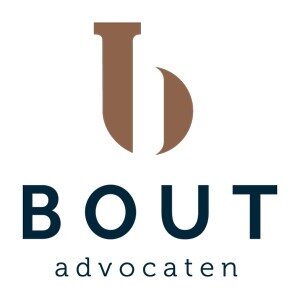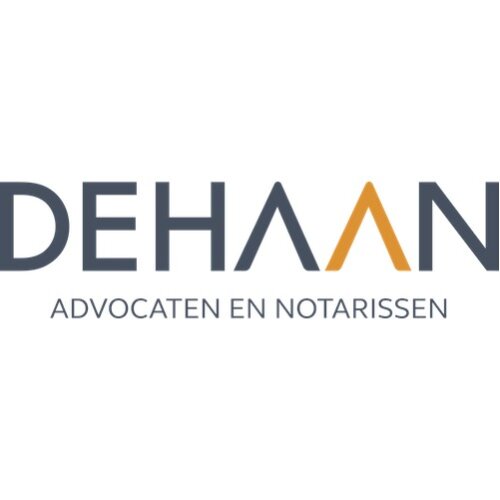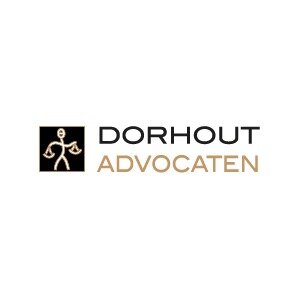Best Debt Capital Markets Lawyers in Groningen
Share your needs with us, get contacted by law firms.
Free. Takes 2 min.
List of the best lawyers in Groningen, Netherlands
About Debt Capital Markets Law in Groningen, Netherlands
Debt capital markets (DCM) refer to the environment in which entities such as corporations, financial institutions, or governments raise funds by issuing debt instruments like bonds, notes, or commercial paper. In Groningen, a vibrant city in the north of the Netherlands, the DCM sector is closely tied to the national legal and financial frameworks while also reflecting the city's innovative and international outlook. DCM transactions are governed by both Dutch laws and relevant European Union regulations, making the legal landscape multifaceted for local and international issuers and investors. Legal advice in this area ensures that transactions are structured efficiently, comply with applicable laws, and protect the interests of all parties involved.
Why You May Need a Lawyer
Engaging in debt capital markets transactions in Groningen can be complex. You may need a lawyer if you are:
- Considering issuing or investing in bonds, notes, or other debt instruments
- Interested in securitisation or structured finance transactions
- Involved in public or private placements of debt securities
- Seeking guidance on regulatory compliance with the Dutch Financial Supervision Act and EU Prospectus Regulation
- Negotiating terms with banks, underwriters, or investors
- Facing cross-border issues or needing tax structuring assistance
- Experiencing potential disputes or defaults related to outstanding debt instruments
Legal professionals help to navigate regulatory hurdles, draft essential legal documentation, and ensure your transaction proceeds smoothly.
Local Laws Overview
Debt capital markets transactions in Groningen are primarily regulated under Dutch law, especially the Dutch Financial Supervision Act (Wet op het financieel toezicht, Wft), and must adhere to European regulations such as the Prospectus Regulation and the Market Abuse Regulation. Key aspects include:
- Licensing and Regulation - Issuers and intermediaries may require licenses or must comply with notification obligations to the Netherlands Authority for the Financial Markets (AFM).
- Disclosure Requirements - Issuers must often prepare and publish approved prospectuses unless exemptions apply.
- Transparency and Reporting - Ongoing disclosure and transparency obligations exist for listed debt securities.
- Cross-Border Issues - Dutch law interacts with various EU directives, especially when offering securities across borders.
- Security and Enforcement - Local legal advice is vital for the valid creation and enforcement of security interests.
Groningen's legal market includes DCM specialists familiar with both national legislation and the specifics of cross-border or innovative financing structures.
Frequently Asked Questions
What are the main types of debt instruments issued in Groningen?
Typical debt instruments include corporate bonds, government bonds, covered bonds, notes, and commercial paper, each with its own legal features and issuance requirements.
Do I need regulatory approval to issue bonds in the Netherlands?
Most public offerings require an approved prospectus by the Netherlands Authority for the Financial Markets (AFM), unless an exemption applies. Private placements may have different requirements.
Can foreign companies issue debt in Groningen?
Yes, foreign issuers can access the Dutch debt capital markets, but they must comply with Dutch and EU regulations, including prospectus and transparency rules.
What is the role of a legal adviser in a DCM transaction?
Lawyers draft and review documentation, ensure regulatory compliance, help structure the transaction, assist in negotiations, and advise on risk mitigation.
Are there tax implications for debt issuance in the Netherlands?
Yes, there are tax considerations such as withholding tax, VAT, and transfer tax which may affect both Dutch and non-Dutch parties.
What happens if a debt issuer defaults on their obligations?
Remedies are typically outlined in the documentation and Dutch insolvency law. Legal advisers help in enforcing security or restructuring the debt.
Is Dutch law suitable for cross-border debt offerings?
Dutch law is considered robust for international debt offerings and is commonly chosen for cross-border transactions involving Dutch or EU investors.
Do investors have disclosure rights?
Investors have rights to certain disclosures and continuing information, especially if the instruments are listed, as mandated by Dutch and EU law.
Can debt securities be listed on Dutch or international exchanges?
Yes, debt securities can be listed on Euronext Amsterdam or other international platforms, subject to the listing requirements.
What local organizations regulate DCM activity?
The Netherlands Authority for the Financial Markets (AFM) and De Nederlandsche Bank (DNB) are the key regulators overseeing DCM activities.
Additional Resources
If you require more information or assistance regarding debt capital markets in Groningen, consider reaching out to the following resources:
- The Netherlands Authority for the Financial Markets (AFM) - Supervises financial markets integrity and transparency
- De Nederlandsche Bank (DNB) - The Dutch central bank overseeing financial stability
- Netherlands Bar Association - For finding qualified lawyers and legal information
- Dutch Chamber of Commerce (Kamer van Koophandel) - For company and registration information
- Local law firms in Groningen specializing in banking and capital markets law
- Universiteit Groningen Faculty of Law - Offers research and guidance on Dutch financial law
Next Steps
If you are considering entering the debt capital markets in Groningen or face a related legal issue, take the following steps:
- Clearly define your objectives and gather relevant documentation about your proposed transaction
- Research and identify law firms or legal specialists in Groningen with experience in debt capital markets law
- Contact a lawyer to discuss your needs and ensure you understand your rights, obligations, and potential risks
- Stay informed about regulatory updates and changes in Dutch and EU financial law
- Consider consulting with financial advisers or tax specialists for a comprehensive approach
By taking proactive measures and seeking qualified legal advice, you can navigate the complexities of debt capital markets in Groningen with confidence and compliance.
Lawzana helps you find the best lawyers and law firms in Groningen through a curated and pre-screened list of qualified legal professionals. Our platform offers rankings and detailed profiles of attorneys and law firms, allowing you to compare based on practice areas, including Debt Capital Markets, experience, and client feedback.
Each profile includes a description of the firm's areas of practice, client reviews, team members and partners, year of establishment, spoken languages, office locations, contact information, social media presence, and any published articles or resources. Most firms on our platform speak English and are experienced in both local and international legal matters.
Get a quote from top-rated law firms in Groningen, Netherlands — quickly, securely, and without unnecessary hassle.
Disclaimer:
The information provided on this page is for general informational purposes only and does not constitute legal advice. While we strive to ensure the accuracy and relevance of the content, legal information may change over time, and interpretations of the law can vary. You should always consult with a qualified legal professional for advice specific to your situation.
We disclaim all liability for actions taken or not taken based on the content of this page. If you believe any information is incorrect or outdated, please contact us, and we will review and update it where appropriate.











